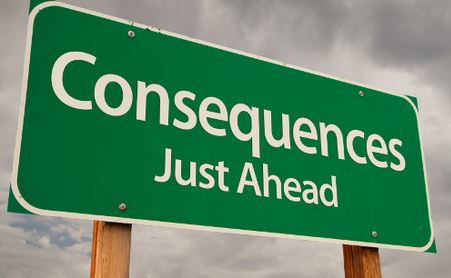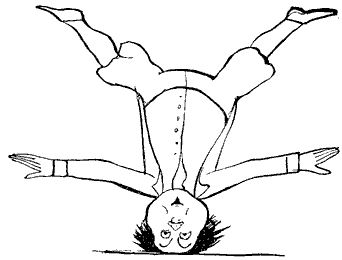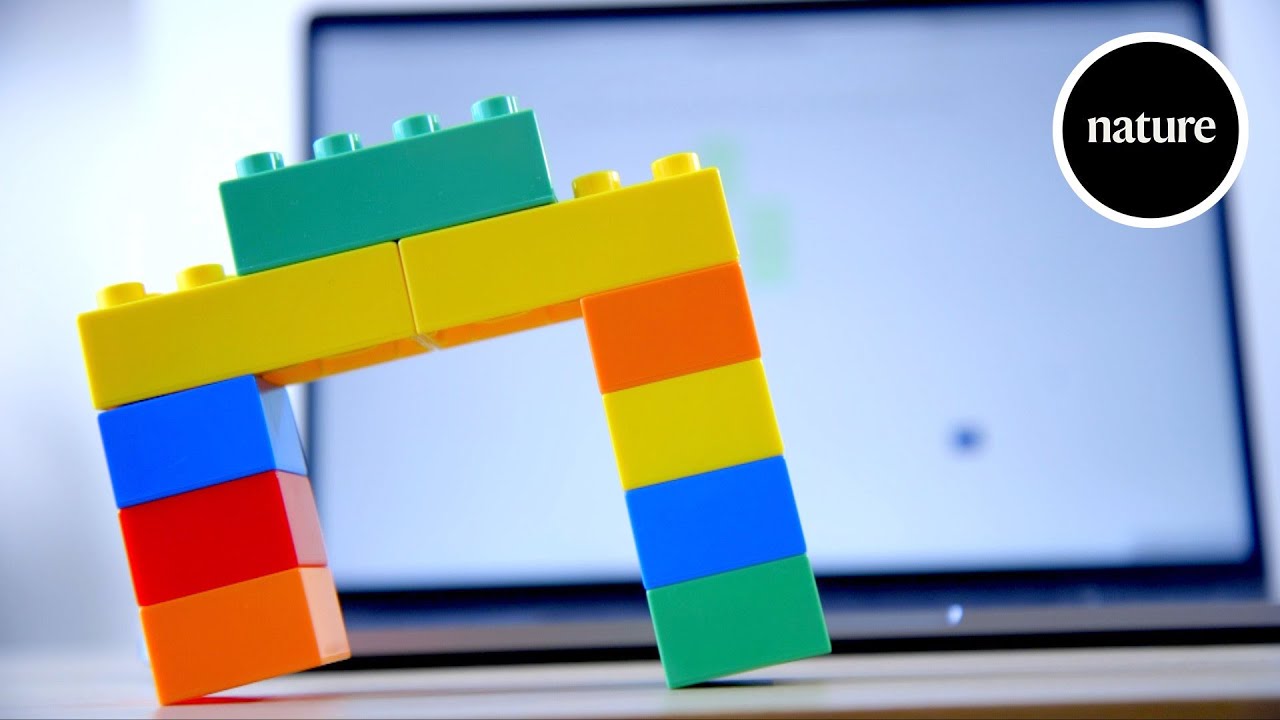Discernment
Exercising Good Judgement
Based on good thinking skills, analytical thinking, independent thinking, and an understanding of cognitive biases and distortions

Discernment - Overview
Discernment is a word that describes the skills and qualities that are required to exercise good judgment.
The skills involved include the capacity to:
- Comprehend complexity
- See and understand hidden and obscure details
- See differences
- Be able to discriminate
These skills are based on good thinking skills which includes analytical thinking and independent thinking, and an understanding of cognitive biases and distortions.
The qualities involved include:
- Keenness and acuteness of insight
- Good judgement
- Objectivity
- Aesthetic discrimination, taste and appreciation
These qualities require background knowledge for context and a values base to determine underlying motives, beliefs and purpose.
For the purposes of this article we are going to summarize all these skills and qualities as "good judgement".
Whilst discernment and good judgment is not a guarantee of the best outcome resulting from every decision, it certainly does increase the odds for achieving a success.
Sir Andrew Likierman, professor of management practice at London Business School defines good judgement as:
“...the ability to combine personal qualities with relevant knowledge and experience to form opinions and take decisions."
Professor Likierman lists the six elements of good judgement

Likierman says:
"I have talked to people in organisations large and small, for-profit and not-for-profit, in many different fields and in a number of countries about this.
The group has included leaders of some of the world’s largest companies as well as entrepreneurial start-ups, professionals including lawyers and doctors, religious leaders and those in sports and the arts.
The result is a framework for measuring judgement which I believe helps to answer the questions of whether we have it ourselves, how to identify it in colleagues and how it can be improved."
Likierman lists the six elements of good judgement as:
1. What you take in
2. Who and what you trust
3. What you know
4. What you feel and believe
5. Making the choice
6. Acting on the decision
The Six Elements Of Good Judgement And Discernment
1. What You Take In

Likierman suggests that this is about how much attention you pay to what you hear or read, and as a result of that, how much you learn, how well you listen and how much attention you pay to what is heard or read
In my view you need to go further and deeper than this.
In The Road Less Traveled I outlined some steps that you can take to establish some useful metrics for figuring out where you are and where you are heading when the way forward is not immediately obvious.
Here are some of the early pointers:
- Get some "pegs in the ground" as soon as possible.
- Establish the hard facts of the situation and the environment you are working in.
- You do this by close observation and attentive listening to what people say.
- Every "fact" has to be verified before it can be regarded as a "hard fact" and before it becomes one of your pegs in the ground.
- As you slowly find and bang your "pegs in the ground" [and this is a continuous process] you will build a solid and immutable body of knowledge that enables you to figure out the necessary metrics for establishing where you are and where you are heading and ultimately for exercising discernment and good judgment.
2. Who And What You trust

Likierman suggests that you rely on the quality of people and material for the raw material of your judgements and that some colleagues are more reliable than others.
He also also recommends that you seek diversity of opinions and information, rather than looking for an “echo chamber” that reinforces what you already think is true.
I agree with this, but I would add an important caveat:
Be like a good detective and, as far as possible, cross reference everything.
Test and check everything until you have some clear pegs in the ground.
Some
of the best people to talk to, and whose opinions you can reasonably
trust, are those who are speaking from well within their circle of competence. These people have the edge.
You should also include people from the informal organisation
that is to say, those people in the front-line who are not in
management positions. In my experience these people usually know what's
really going on and what the real issues are. The same principles apply in a non-business setting.
Also, as Likierman says, seek out the contra-views.
3. What You Know

Likierman says that judgement is context-specific. What is right today may be wrong tomorrow when events have moved on.
Experience is a critical element of exercising discernment and good judgment, decision making, helping shape decisions and it allows you to anticipate potential challenges and issues.
If you are having to make a decision about something which you have little or no experience of, then consult with and defer to someone who does have direct and relevant experience.
Obviously if you are under time pressure and have to made a decision quickly and with limited information then you may not have time to undertake a thorough information gathering exercise.
Nevertheless the broad principle remains that as far a possible you need to get at least 3 pegs in the ground based on hard facts.
You need some fixed points of reference. This gives you a basis for triangulating and extrapolating the likely "direction of travel" of the situation about which you are being required to exercise good judgement
I
have outlined above some basic steps to getting a handle on a situation
but - the reality is that often you will not have all the facts or
certainties that you need and you will need to use additional thinking skills.
Applying Probabilistic Thinking
This is where you need to apply probabilistic thinking.
Shane Parrish summarised this wonderfully:
- "Successfully thinking in shades of probability means roughly identifying what matters, coming up with a sense of the odds, doing a check on our assumptions, and then making a decision.
- More people talk about probability than use it to think and make decisions.
- Probability is full of nuance not the convenience of black and white thinking.
- We can act with a higher level of certainty in complex, unpredictable situations.
- We can never know the future with exact precision.
- Probabilistic thinking is an extremely useful tool to evaluate how the world will most likely look so that we can effectively strategize."
4. What You Feel And Believe

Likierman says that values and beliefs are
inevitably involved in judgements.
There are 2 key points here. The first is self awareness, that is how you consciously know and understand your own character, feelings, motives, and desires.
In practical terms self awareness means:
Looking for patterns in our thinking as we seek to understand and interpret specifically what happens to us, and more generally what happens in the world as far as we are aware if it.
- Looking at how we ascribe meaning and value to those things.
- Gaining insight into our emotions, moods, reactions and responses.
- Paying attention to our default responses, and our ingrained habitual tendencies.
The
second key point is about paying attention to your default responses,
and your ingrained habitual tendencies, and very specifically to
understand the heuristics [mental shortcuts] that you will most likely use together with your unconscious cognitive biases.
Take steps to understand cognitive biases and take steps to mitigate their impact by seeking the input and advice of an objective third party.
"Cognitive Distortions The Psychology of Human Misjudgment" explains several of the most common cognitive distortions and how to avoid them, together with extensive resources
Be Aware Of And Avoid The "Do Something" Syndrome
Technically this is known as Iatrogenics - a word drawn for the field of medicine where sometime the best action is not a medical intervention and the best decision that the doctor can make is to let things run their course.
This is more commonly known as "Intervention Bias".
When to Step in and When To Leave Things Alone
5. Making The Choice
This is the stage of bringing together the “raw material” of the decision in a way that improves the chances of success.
This might mean not accepting the obvious options as the only options.
Here are 4 proven thinking techniques that can assist you in making your choices:

(1) Avoiding Unintended Consequences
This is about second order thinking which can be summarised as going beyond the obvious and avoiding unintended consequences.
It is about thinking in terms of interactions and time, and considering the consequences of a potential decision or action.
It is about seeing things that other people don't or can't see.
It is more deliberate thinking.
It takes longer and is harder work than first order thinking.
It leads to extraordinary performance.
The key question to ask is: "And then what..?"
(2) Avoiding Stupidity is Easier than Seeking Brilliance

Warren Buffett's long term business partner Charlie Munger has said:
"It
is remarkable how much long term advantage people like us have gotten
by trying to be consistently not stupid, instead of trying to be very
intelligent."
Buffett and Munger have proven themselves time and again over decades with their the capacity and capability of exercising discernment and good judgement in their investment decisions.
Simon Ramo, a scientist and statistician, wrote a fascinating little book in the 1970s: Extraordinary Tennis Ordinary Players.
In this book Ramo identifies the crucial difference between the
winner’s game and a loser’s game. I wrote a short piece on this here and
the conclusion is that:

(3) Applying Inversion - One Of The Best Ways Of Avoiding Stupidity
Inversion is thinking about your objective in reverse.
Instead of thinking forward about what you need to do to get what you want, you spin it round and in reverse, away from your objective, about what you don’t want to happen.
Think about what you want to avoid, or the opposite of what you want to achieve, then plan effectively to prevent failure.
Charlie Munger highlights this point:
“Invert, always invert: Turn a situation or problem upside down. Look at it backward. What happens if all our plans go wrong? Where don’t we want to go, and how do you get there? Instead of looking for success, make a list of how to fail instead–through sloth, envy, resentment, self-pity, entitlement, all the mental habits of self-defeat. Avoid these qualities and you will succeed."

(4) Less Is More - Consider Decisions That Could Involve Subtractive Solutions
So often when evaluating all the information to hand and
seeking to exercise discernment and good judgement our default position
- especially with decisions that involve making an improvement - is to
add something.
A good way of reducing your subtraction bias is to ask yourself:
“What are the things that I should avoid?” rather than asking “What should I do?”
6. Acting On The Decision
As Likierman says, choice is not the end of the story. The feasibility of delivery also has to be considered.The final and critical stage of this whole process of exercising discernment and good judgment is the implementation phase.
The key steps for translating a vision, a decision and a strategy into actionable steps are as follows:
Communicate
- articulate your vision clearly, simply, consistently and frequently [in
under 60 seconds] to those involved in making it happen. This step still applies even if you are implementing the decision yourself.
Define - set out in a logical way the things you need to get right in order to get the desired result.
Manage - make sure the details, at each appropriate level, are being got right day after day. Check in with those who are implementing regularly and frequently – especially in the early stages
Consistency – if change is needed in what they are doing, make sure it's consistent with the vision you have given them, and clearly communicated.
Implement
- follow-up on your instructions and tell people when they've done a good
job, give them guidance when they haven't - but always notice what they're
doing – and always say “please” and “thank you”
Integrate - if the implementation of your decision involves a change to existing procedures and ways of doing things, it takes many repetitions to form a new habit [it is estimated that this may be as many as 30-40 times over a period of 1 to 3 months], so do not make the mistake of assuming “they’ve got it” too soon.
Adopt - if the implementation of your decision involves a change reinforce the new ways of doing things by helping staff to feel enthusiastic and special about what they do
These notes are an extract from the material on my change management website you can download a free ebooklet on Task Implementation.
If the implementation of the decision involves a significant change to existing ways of doing things then I also recommend that you download this free ebooklet Change Quick Guide.
Further Reading:
Return from "Discernment" to: Thinking Skills
LATEST ARTICLES
Does Prayer Work? The Psychology of Prayer, Meditation and Outcomes
 Reality Is A Complex System Of Countless Interactions - Including Yours. So does prayer work? The problem is that the question itself is usually framed in a way that guarantees confusion. We tend to a…
Reality Is A Complex System Of Countless Interactions - Including Yours. So does prayer work? The problem is that the question itself is usually framed in a way that guarantees confusion. We tend to a…Living in Survival Mode Without Surrendering Mental Authority
Living in Survival Mode Without Surrendering Mental Authority
 Clear Thinking When You’re Just Trying to Stay Afloat. Many people today are overwhelmed because they are living in survival mode - not temporarily, but as a persistent condition of life. For many, th…
Clear Thinking When You’re Just Trying to Stay Afloat. Many people today are overwhelmed because they are living in survival mode - not temporarily, but as a persistent condition of life. For many, th…Manifestation Without Magic: A Practical Model
 Manifestation without magic is not a softer or more intellectual version of popular manifestation culture. It is a different model altogether. Popular manifestation teachings tend to frame reality as…
Manifestation without magic is not a softer or more intellectual version of popular manifestation culture. It is a different model altogether. Popular manifestation teachings tend to frame reality as…Staying Committed When You Can't See Progress - The Psychology of Grit
 Uncertainty Is Not The Absence Of Progress, Only The Absence Of Reassurance. One of the most destabilising experiences in modern life is not failure, but uncertainty and staying committed when you can…
Uncertainty Is Not The Absence Of Progress, Only The Absence Of Reassurance. One of the most destabilising experiences in modern life is not failure, but uncertainty and staying committed when you can…The Battle For Your Mind - How To Win Inner Freedom In A Digital Age Of Distraction
 From External Events to Inner Events. We often think of “events” as things that happen out there: the traffic jam, the rude comment, the delayed email reply. But what truly shapes our experience is wh…
From External Events to Inner Events. We often think of “events” as things that happen out there: the traffic jam, the rude comment, the delayed email reply. But what truly shapes our experience is wh…How to See Your Thoughts Without Becoming the Story
 A Practical Guide to Thought-Awareness. You can spend your life inside the stories of your mind without ever learning how to see your thoughts clearly and objectively. Most of the stuff we tell oursel…
A Practical Guide to Thought-Awareness. You can spend your life inside the stories of your mind without ever learning how to see your thoughts clearly and objectively. Most of the stuff we tell oursel…The Collison Decision Matrix - A Simple Framework for Better Choices
 The Collison Decision Matrix Is A Practical Everyday Thinking Tool. Most of us spend a surprising amount of time worrying about decisions. From small ones such as what to wear, what to eat, what to te…
The Collison Decision Matrix Is A Practical Everyday Thinking Tool. Most of us spend a surprising amount of time worrying about decisions. From small ones such as what to wear, what to eat, what to te…The Power Of Asking The Right Question
 The Power Of Asking The Right Question Lies In The Quest For Insight. To experience the power of asking the right question you must develop the practice of asking questions. The best way to improve th…
The Power Of Asking The Right Question Lies In The Quest For Insight. To experience the power of asking the right question you must develop the practice of asking questions. The best way to improve th…Site Pathways
 Here is a site pathway to help new readers of Zen-Tools navigate the material on this site. Each pathway is based around one of the many key themes covered on this site and contain a 150 word introduc…
Here is a site pathway to help new readers of Zen-Tools navigate the material on this site. Each pathway is based around one of the many key themes covered on this site and contain a 150 word introduc…How To Live With Contradiction - Beyond Thought Let Stillness Speak
 A major impact on so many peoples' lives is the situational contradiction of unfilled realistic expectations. So where does all this leave us? Well here we are, with mental equipment that is more lim…
A major impact on so many peoples' lives is the situational contradiction of unfilled realistic expectations. So where does all this leave us? Well here we are, with mental equipment that is more lim…How To Trust The Process Of Mindfulness - Right Now
 In mindfulness, the process isn’t some distant goal — it's what is happening right now. When we talk about how to trust the process of mindfulness the credibility of the process is heavily dependent…
In mindfulness, the process isn’t some distant goal — it's what is happening right now. When we talk about how to trust the process of mindfulness the credibility of the process is heavily dependent…